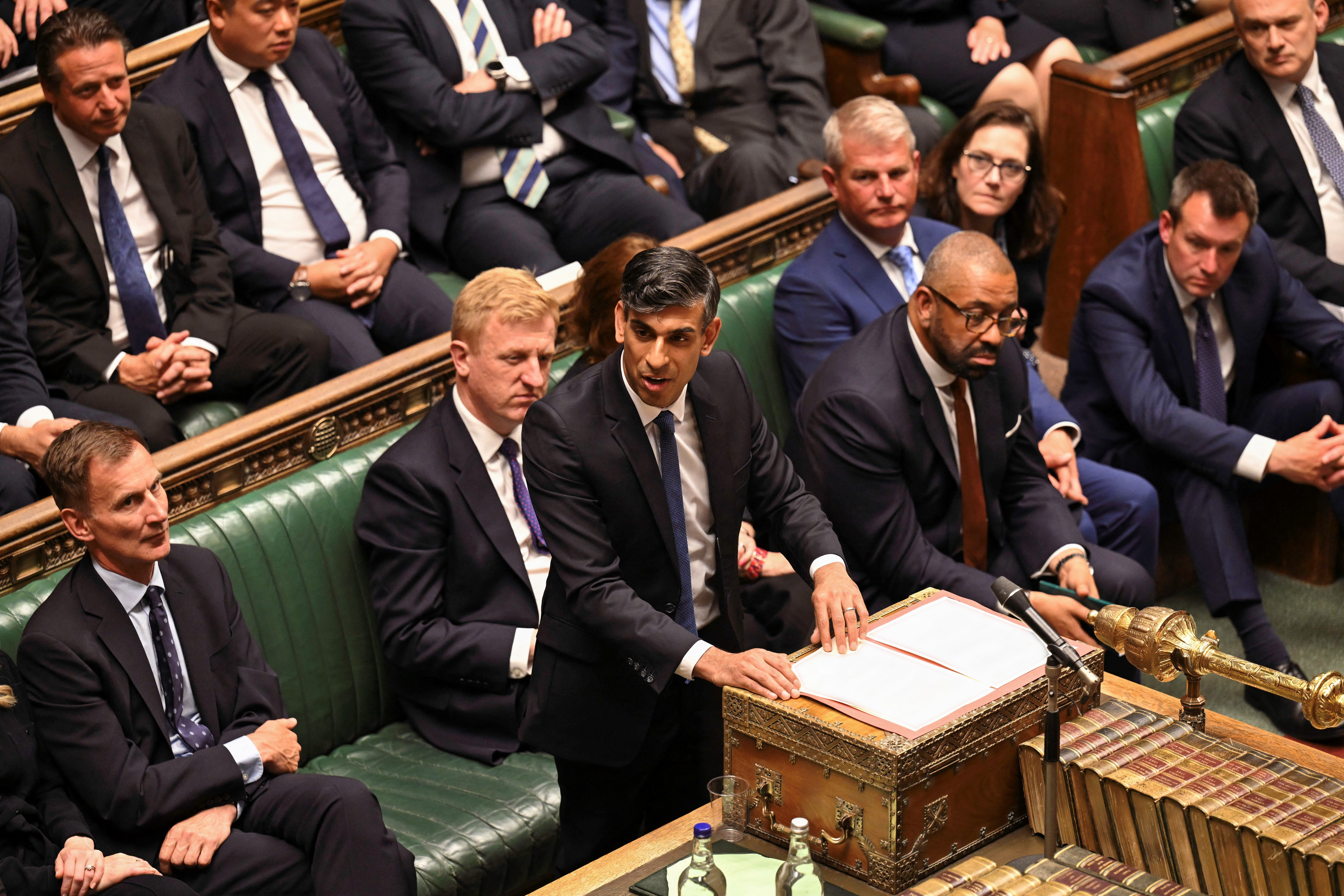Will Rishi Sunak stick around to take on Keir Starmer at PMQs?
Some unseated prime ministers have stayed on to lead their party in opposition at the despatch box, but some have exited the stage with haste. Sean O’Grady looks at what might be in store for the leader of the new opposition


One of the many humiliations suffered by the Conservatives in the past week has been the temporary deletion of their X/Twitter account. For a short time, visitors to the party’s social media page were greeted only with the error message: “Something went wrong”. That’s an understatement, although the question remains exactly what went wrong.
Identifying a way forward could take months, if not years, but in the meantime what’s left of the parliamentary Conservative party has to form an effective opposition. In the short term, this means Rishi Sunak taking on Keir Starmer’s former role in the most brutal of job swaps…
When will Starmer and Sunak face each other in their new roles?
After yesterday’s first-day-of-term niceties, the first substantive clash between the two leaders will follow the King’s Speech, on Wednesday 17 July. The pair will probably then face one another again at Prime Minister’s Questions (PMQs) the following Wednesday. If the Conservatives choose a new leader during the summer recess, that may well be their last exchange.
What has happened in the past?
After Labour premier James Callaghan lost the May 1979 general election, he was replaced by Margaret Thatcher and soldiered on in the role of leader of the opposition all the way until November 1980. This was primarily to use his position and authority to prevent his restless party from shifting too far to the left, and to influence the choice of its new leader. Admittedly, that was an unusually long stint for a leader who wasn’t intending to fight the next election. In 1997, John Major spent seven weeks as opposition leader asking Tony Blair the questions, again partly for internal party political reasons.
However, Sunak could effectively quit much sooner – as Gordon Brown did in 2010, when he handed over PMQs and similar responsibilities to Harriet Harman as soon as he could rather than directly face the upstart David Cameron. The equivalent now would be for Sunak to hand the task of PMQs etc over to Oliver Dowden, who is now deputy leader of the opposition in the new shadow cabinet.
Sunak’s statement that he will step down “once the formal arrangements for selecting my successor are in place” leaves his options reasonably open.
When will the Tories choose a new leader and leader of the opposition?
We don’t yet know, and the timing is linked to their internal manoeuvrings. In 2005, Michael Howard postponed quitting after his May election defeat until after the October party conference, giving his favoured successor, David Cameron, time to establish himself against the better-known frontrunner David Davis. Cameron’s speech at the conference certainly enhanced his chances, and he went on to win.
In Sunak’s case, nothing can be done before the 1922 Committee of Conservative backbenchers is reconstituted next Tuesday. The new committee will need to consult the wider party on any changes to the leadership election rules, such as the minimum number of nominees in such a denuded parliamentary group; and the role of the membership.
So Sunak could make a case for getting out as early as next week, and handing over to Dowden on an interim basis; or waiting until the summer if it takes time to define the rules and organise a leadership contest and it suits Sunak’s remaining interest in the party’s future.
What difference does that make?
Other things being equal, a longer election process would mean more time for the less prominent contenders to gather some momentum. So, other things being equal, it would mean more time for, say, James Cleverly and Victoria Atkins to build up a campaign, whereas a quicker process would help the present favourites, Kemi Badenoch, Robert Jenrick and Tom Tugendhat.
What will this mean for the public?
The longer it takes to elect a new Conservative leader and nominate a shadow cabinet the longer it will take for the Conservatives to rebuild, present alternative policies, impress voters, provide adequate scrutiny and argue for alternatives against a government with the biggest majority in decades. If the party falls back into another burst of civil war for years, then the Liberal Democrats and Reform UK will fill the vacuum and make further progress.
Whether this scenario would discomfit the Starmer administration more or less than a more traditional pattern of opposition remains to be seen. However, it seems obvious that the Tories in their current predicament need to retain the veneer of a plausible alternative government, both for their own sake and that of a functioning parliamentary democracy. Sunak’s last weeks in office will be more consequential than might be assumed.



Join our commenting forum
Join thought-provoking conversations, follow other Independent readers and see their replies
Comments